Introduction
In the realm of logistics and freight transportation, skeletal container semi trailers have carved a niche that appeals to businesses of all sizes. These specialized trailers are engineered to transport shipping containers efficiently, offering unparalleled flexibility and adaptability. Whether you’re a seasoned logistics professional or a business owner interested in optimizing your freight transportation, understanding the intricacies of skeletal container semi trailers is paramount.
What is a Skeletal Container Semi Trailer?
A skeletal container semi trailer is a lightweight, robust trailer specifically designed to carry shipping containers. The key elements of these trailers include:
- Chassis: The main structural component that holds the container.
- Coupling: The device used to attach the trailer to a tractor unit.
- Axles: Components that support the weight of the trailer and enable it to roll.
- Container Locks: Mechanisms to secure containers during transit.
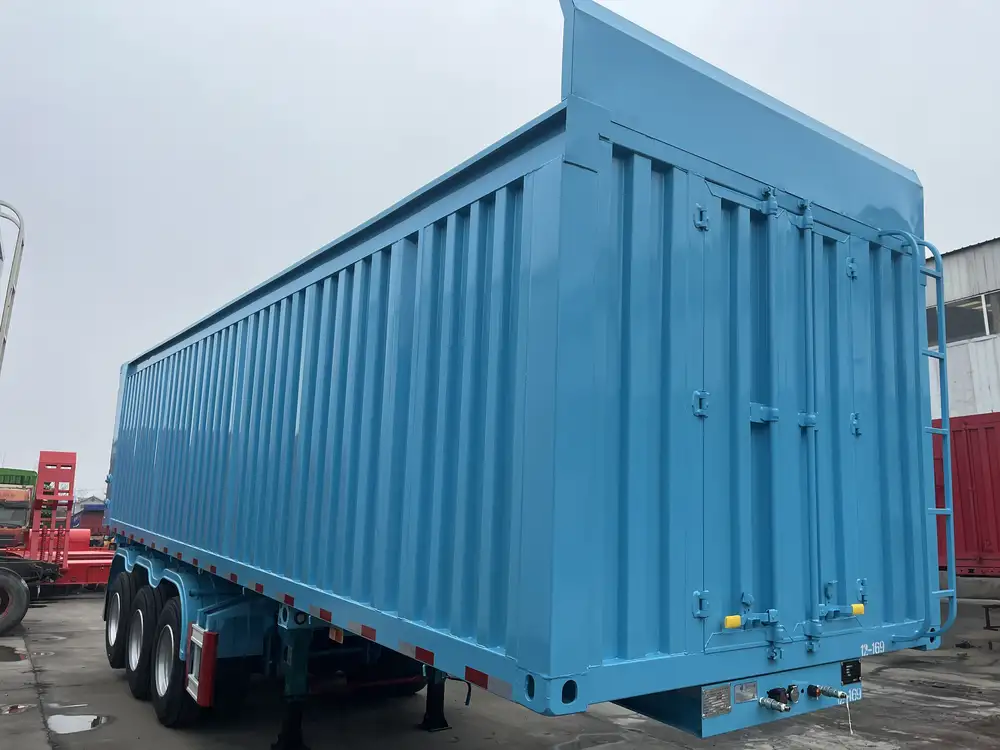
Distinct Features of Skeletal Container Semi Trailers
Lightweight Construction: Leveraging advanced materials to ensure maximum load capacity without compromising on structural integrity.
Intermodal Capability: Designed to facilitate seamless transfer between road, rail, and sea transport, making them ideal for global logistics.
Versatility: Capable of accommodating various container sizes, typically 20-foot or 40-foot containers.
Enhanced Maneuverability: Features such as tandem axles and a low-profile design enhance maneuverability in tight urban environments and dockyards.
Benefits of Using Skeletal Container Semi Trailers
1. Increased Efficiency
Skeletal container semi trailers provide an efficient solution for transporting containers directly from ports to destinations with minimal handling. This efficiency translates into reduced logistics costs and quicker delivery times.

2. Cost-Effectiveness
The inherent design of skeletal trailers leads to significant savings on both fuel and maintenance. Their lightweight nature means they can carry heavier loads without exceeding weight limits, allowing businesses to maximize their operations economically.
3. Enhanced Flexibility
These trailers can easily switch between container sizes and types, adapting to varying shipping needs without requiring additional investments in different transport solutions.
4. Improved Durability
Manufactured with high-strength steel and treated for corrosion resistance, skeletal container semi trailers are built to withstand the rigors of intensive usage and challenging conditions.
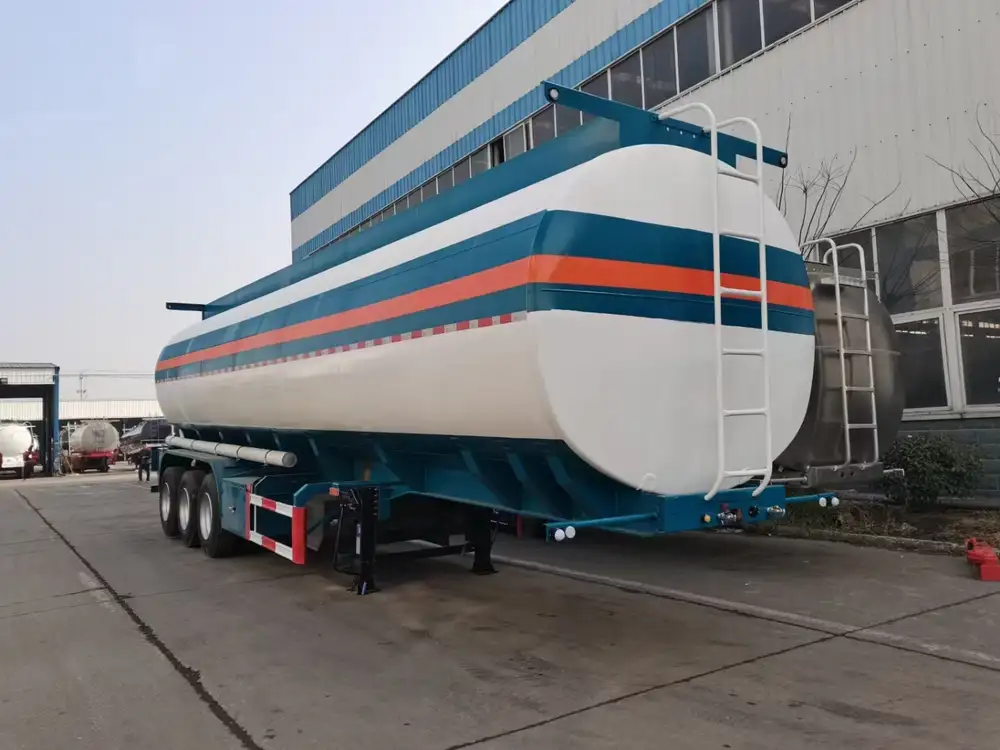
Key Considerations When Choosing a Skeletal Container Semi Trailer
1. Familiarize Yourself with Load Capacities
Assessing the load capacity is vital. The maximum gross weight that the trailer can handle significantly impacts operational efficiency. Understand the specific requirements of your business and choose a trailer that aligns with your transport needs.
| Container Size | Typical Payload Capacity |
|---|---|
| 20-foot | 18,000 – 22,000 lbs |
| 40-foot | 30,000 – 35,000 lbs |
2. Understand Legal and Regulatory Requirements
Different regions have specific regulations governing trailer dimensions and weight limits. It’s essential to familiarize yourself with these regulations to avoid potential fines or operational delays.
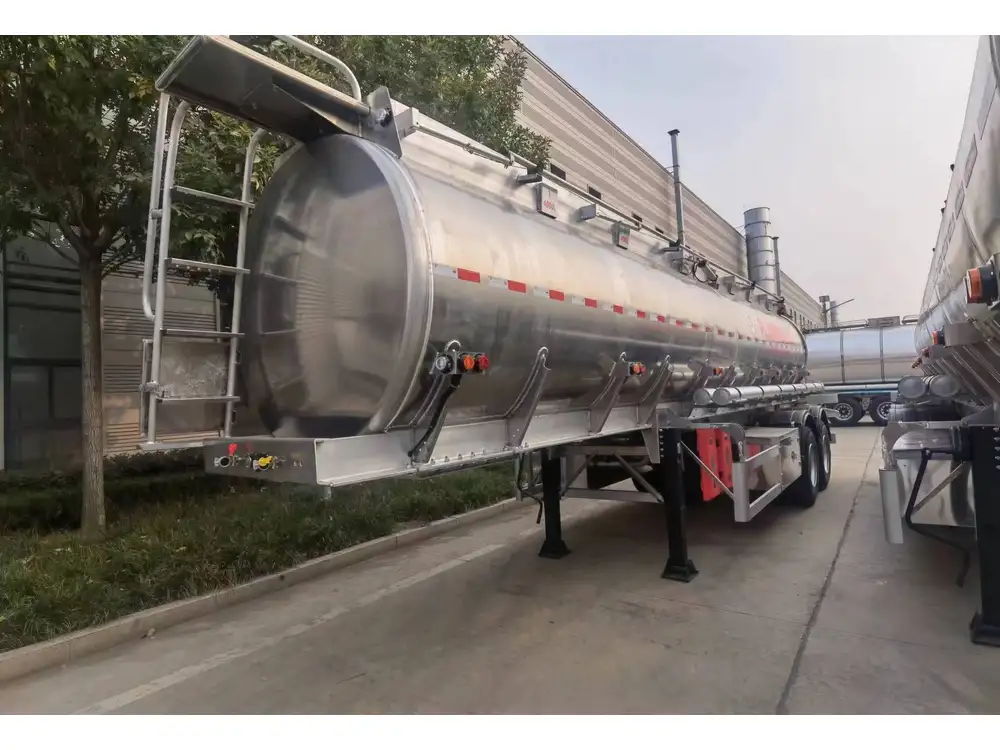
3. Evaluate Trailer Features
The variety of available features can impact the performance and utility of a skeletal container semi trailer:
- Type of Axles: Single vs. tandem axles affect stability and load distribution.
- Container Locking Systems: Ensure that your trailer is equipped with advanced, secure locking mechanisms for cargo safety.
- Suspension Types: Air suspension systems can provide improved ride quality, especially over rough terrain.
4. Prioritize Maintenance and Service Requirements
Regular maintenance ensures longevity and optimal performance. Review the service history and maintenance recommendations from manufacturers to minimize downtime and unexpected costs.
Comparing Skeletal Container Semi Trailers
To further assist in your decision-making process, we’ve compiled a comparison table highlighting key features of leading skeletal container semi trailer brands:
| Brand | Payload Capacity | Material | Axle Configuration | Locking System | Warranty |
|---|---|---|---|---|---|
| Brand A | 30,000 lbs | High-strength steel | Tandem | Advanced twist-lock | 5 Years |
| Brand B | 25,000 lbs | Aluminum | Single | Simple pin-lock | 3 Years |
| Brand C | 32,000 lbs | Steel | Tandem | Dual locking mechanism | 4 Years |

Maintenance Tips for Skeletal Container Semi Trailers
Proper maintenance not only extends the life of your trailer but ensures its peak operational performance. Here are essential maintenance tips:
1. Regular Inspections
Conduct routine inspections, focusing on:
- Structural Integrity: Look for cracks or signs of wear and tear.
- Tires: Check pressure, tread depth, and sidewall condition.
- Braking System: Regularly test brakes for effectiveness and responsiveness.
2. Lubrication
Keep moving components well-lubricated to reduce wear and prevent breakdowns. This includes wheel bearings, hinges, and suspension components.
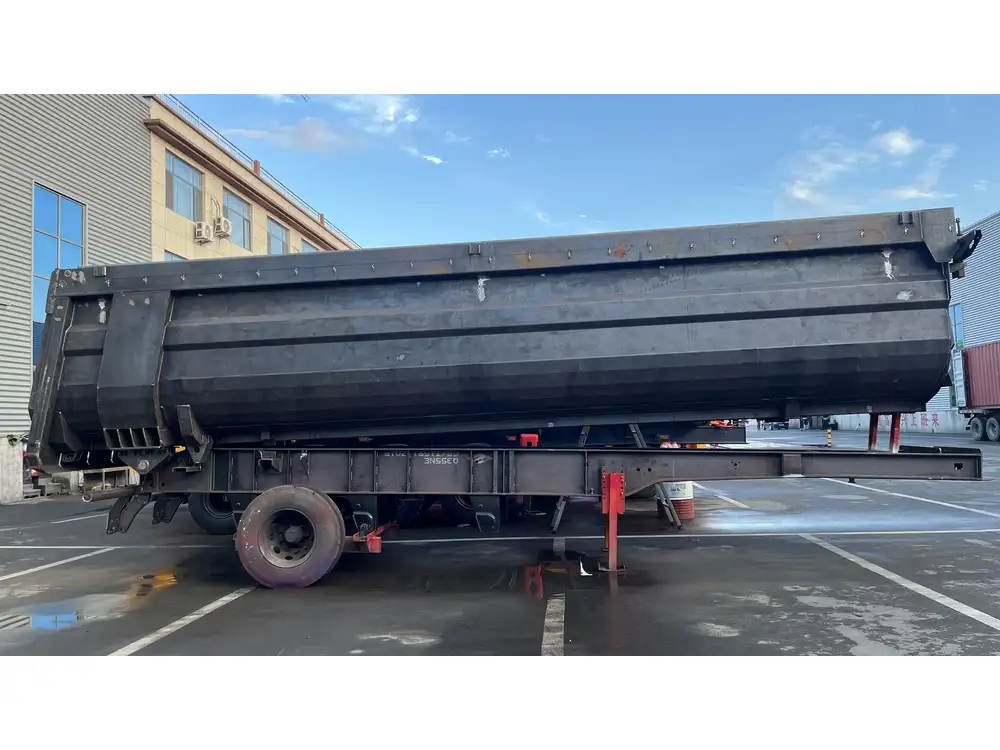
3. Cleaning
Regular cleaning helps prevent corrosion and the buildup of debris that could affect performance. Pay special attention to areas around axles, wheels, and suspension systems.
4. Tire Maintenance
Maintaining tire pressure and tread is crucial for safety. Over-inflated tires can lead to blowouts, while under-inflated tires can reduce fuel efficiency and decrease load capacity.
Innovations in Skeletal Container Semi Trailers
As technology evolves, so do the capabilities of skeletal container semi trailers. Here are some leading innovations in the industry:
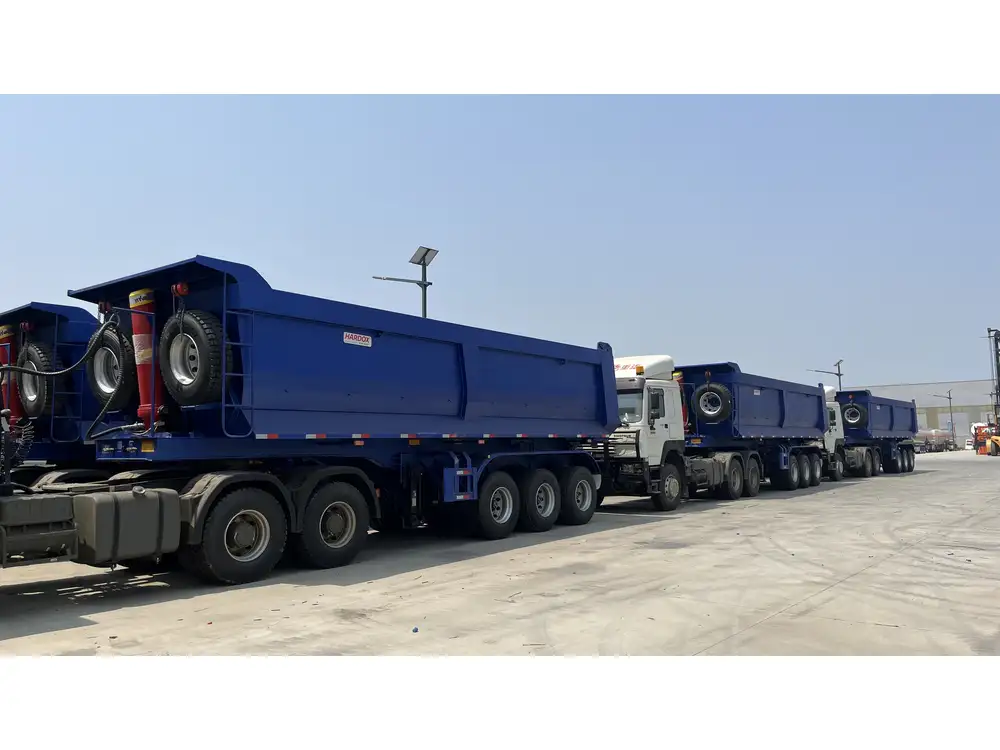
1. Smart Trailer Technology
Integration of Internet of Things (IoT) devices allows for real-time tracking and monitoring of trailer performance and cargo status. This facilitates better route planning and operational efficiency.
2. Enhanced Materials
Advancements in material science have led to the development of lighter and stronger materials, reducing overall trailer weight without sacrificing durability.
3. Eco-Friendly Designs
Manufacturers are increasingly focusing on sustainability, producing skeletal trailers designed to meet strict environmental guidelines. This not only benefits the planet but can also attract environmentally conscious clients.

Common Issues and Solutions
While skeletal container semi trailers are robust, they are not immune to issues. Here’s a rundown of common problems and suggested solutions:
| Common Issue | Symptoms | Solution |
|---|---|---|
| Misaligned Container | Shifting during movement | Inspect and adjust locking mechanisms |
| Inadequate Suspension | Rough ride and uneven weight distribution | Check and, if necessary, upgrade the suspension system |
| Tire Blowouts | Sudden loss of control | Regular tire pressure checks and replacements when necessary |
Conclusion
In conclusion, the skeletal container semi trailer plays an essential role in modern logistics, offering solutions that meet the demands of diverse industries. By understanding the features, benefits, and considerations of these trailers, businesses can optimize their transportation logistics, reduce costs, and improve delivery efficiency. With the continuous evolution of technology and materials, investing in an advanced skeletal container semi trailer not only assures a competent hauling solution but also prepares your fleet for the challenges of tomorrow. Making informed decisions about your transport solutions ensures longevity and reliability in your operations.
With this comprehensive guide, you are equipped to choose the right skeletal container semi trailer to meet your business’s unique needs effectively.



